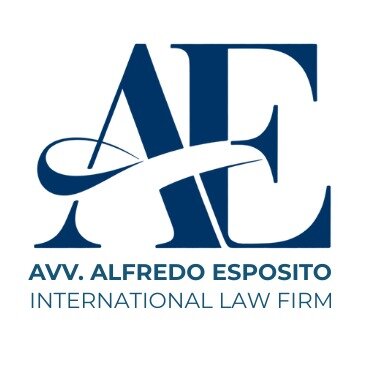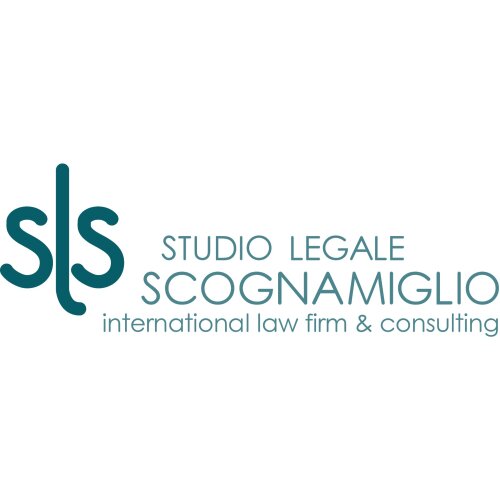Best Private Equity Lawyers in Naples
Share your needs with us, get contacted by law firms.
Free. Takes 2 min.
List of the best lawyers in Naples, Italy
About Private Equity Law in Naples, Italy
Private equity involves investment funds and activities that provide capital to private companies or enable buyouts of public companies, resulting in their de-listing. In Naples, Italy, private equity has become an important way for entrepreneurs and businesses to access growth capital, often supporting innovation, restructuring, and expansion. The region’s dynamic business environment, coupled with Italy’s robust legal and regulatory frameworks, has made Naples an attractive option for both domestic and international private equity operations. However, navigating Italian statutes and local market practices requires careful legal consideration.
Why You May Need a Lawyer
Private equity transactions can be complex, often involving high-value investments, negotiations, and regulatory compliance. You may require legal assistance in a variety of situations, such as:
- Structuring and negotiating deal terms
- Conducting due diligence on target companies
- Complying with anti-trust and competition laws
- Drafting investment agreements and shareholder pacts
- Advising on tax-efficient investment structures
- Managing risks related to employment, intellectual property, and real estate
- Assistance with exiting an investment, whether through sale, IPO, or other mechanisms
- Resolving disputes arising from contractual obligations or regulatory issues
Local Laws Overview
Private equity in Naples falls under the broader Italian legal framework and the regulations of the European Union. Key aspects include:
- Legislative Framework: Private equity operations are mainly regulated by the Italian Civil Code, local corporate statutes, tax regulations, and the Consolidated Law on Finance (TUF).
- Company Law: Regulations govern the formation, management, and governance of Italian companies, particularly Società a Responsabilità Limitata (Srl) and Società per Azioni (SpA), the most common vehicles for private equity.
- Financial Supervisory Authorities: The Bank of Italy and CONSOB oversee compliance in financial activities, including disclosure obligations and investor protection.
- Antitrust & Merger Controls: Investments may require approval from the Italian Competition Authority, especially for significant transactions.
- Tax Regime: Italy’s tax legislation addresses capital gains, withholding taxes, and treaty benefits relevant to cross-border transactions.
- Local Specifics: Naples, as part of the Campania region, may have local incentives for investment but operates primarily under national rules.
Frequently Asked Questions
What is private equity and how does it work in Naples?
Private equity refers to investment in companies that are not publicly traded. In Naples, funds typically invest in local businesses or cooperate in larger transactions involving national or international players. Investors seek to add value to their portfolio companies before eventually exiting with a profit.
Are there restrictions on foreign private equity investors in Italy?
Foreign investment is generally welcome. However, certain sectors such as defense, telecom, and energy may have restrictions or require governmental approval. Due diligence and legal advice help ensure compliance.
What are the main steps in a typical private equity deal?
Common steps include identifying targets, due diligence, negotiating terms, executing agreements, obtaining regulatory approvals, closing the investment, and planning the exit strategy.
What corporate structures are commonly used for private equity deals?
The most common corporate forms in Naples and Italy are Srl (limited liability company) and SpA (joint-stock company). These structures offer flexibility and legal protections suited to investors.
What are due diligence requirements in Italy?
Due diligence includes reviewing legal, financial, tax, and operational aspects of the target company. Legal professionals help identify liabilities and ensure full compliance with Italian laws.
How are private equity funds regulated in Italy?
Funds must comply with Italian and EU regulations. They are supervised by authorities such as CONSOB and must meet requirements on disclosure, anti-money laundering, and investor protection.
What are the key tax considerations for private equity transactions?
Tax considerations include capital gains taxation, VAT on certain services, withholding taxes, and potential treaty benefits for cross-border structures. Legal and tax advisors can optimize deal structures.
Can minority rights and protections be negotiated?
Yes, minority investors often negotiate rights such as board representation, veto rights on key decisions, and protections against dilution. These are detailed in shareholder agreements.
What happens if there is a dispute between investors or with company management?
Disputes are typically resolved through negotiation or arbitration, often stipulated in investment or shareholders’ agreements. Italian courts are also available, though many prefer alternative dispute resolution methods for efficiency.
How do I proceed if I want to exit my investment?
Exits can occur by selling to another investor, via management buyouts, or through a public listing. Planning for exit is typically included in the original transaction terms.
Additional Resources
For anyone seeking more information or support in private equity law, the following resources and organizations may be valuable:
- Bank of Italy (Banca d’Italia): Supervisory authority for financial activities, including private equity funds.
- CONSOB (Commissione Nazionale per le Società e la Borsa): Regulatory body overseeing Italian securities and financial markets.
- Italian Private Equity, Venture Capital and Private Debt Association (AIFI): Industry body providing guidance, research, and events on private equity.
- Chamber of Commerce of Naples (Camera di Commercio di Napoli): Offers business support and registration services locally.
- Local law firms and legal portals: Many reputable firms in Naples offer specialized services in private equity law.
Next Steps
If you require legal advice or assistance in private equity in Naples, consider the following steps:
- Identify your investment goals and main concerns.
- Compile relevant documentation about your business or target investment.
- Contact a qualified legal professional with expertise in private equity transactions in Italy.
- Discuss your situation and seek a preliminary consultation to understand your legal options and associated costs.
- Evaluate proposals and commit to legal representation that aligns with your objectives.
- Stay informed about your transaction’s progress and maintain clear communication with your legal team.
Lawzana helps you find the best lawyers and law firms in Naples through a curated and pre-screened list of qualified legal professionals. Our platform offers rankings and detailed profiles of attorneys and law firms, allowing you to compare based on practice areas, including Private Equity, experience, and client feedback.
Each profile includes a description of the firm's areas of practice, client reviews, team members and partners, year of establishment, spoken languages, office locations, contact information, social media presence, and any published articles or resources. Most firms on our platform speak English and are experienced in both local and international legal matters.
Get a quote from top-rated law firms in Naples, Italy — quickly, securely, and without unnecessary hassle.
Disclaimer:
The information provided on this page is for general informational purposes only and does not constitute legal advice. While we strive to ensure the accuracy and relevance of the content, legal information may change over time, and interpretations of the law can vary. You should always consult with a qualified legal professional for advice specific to your situation.
We disclaim all liability for actions taken or not taken based on the content of this page. If you believe any information is incorrect or outdated, please contact us, and we will review and update it where appropriate.












